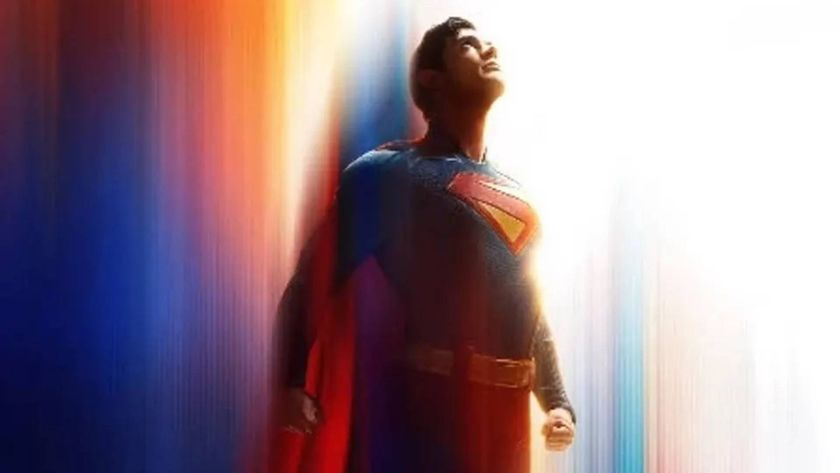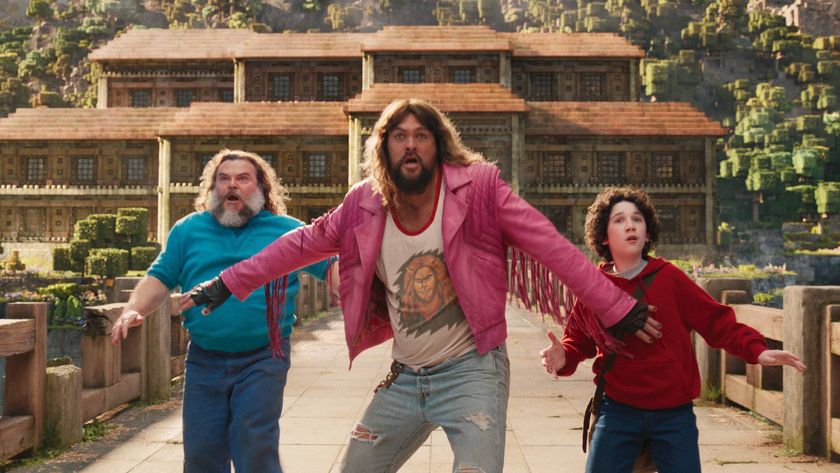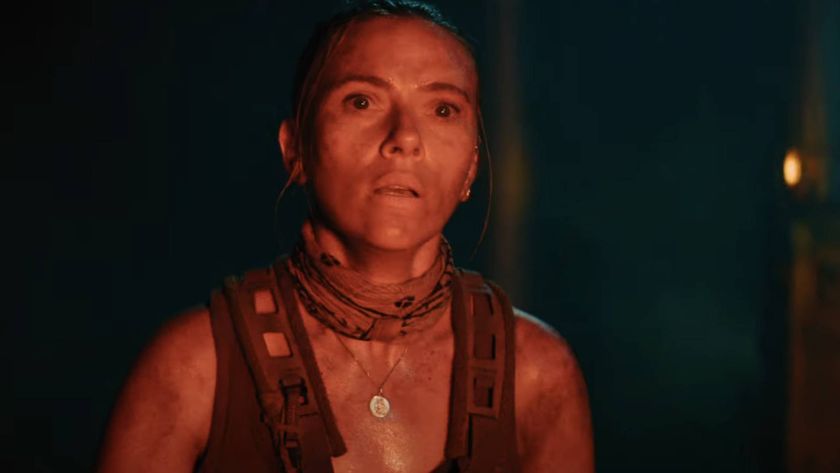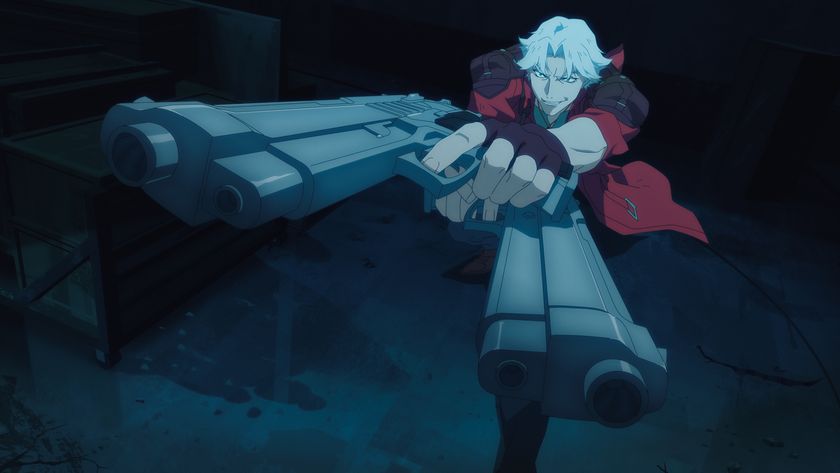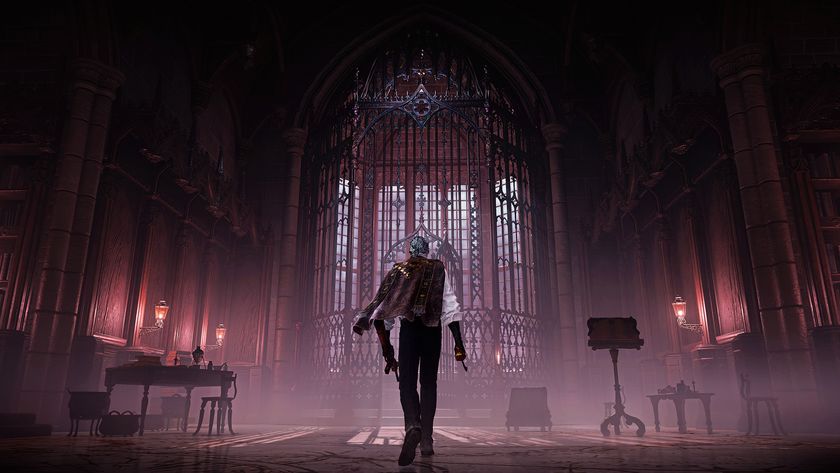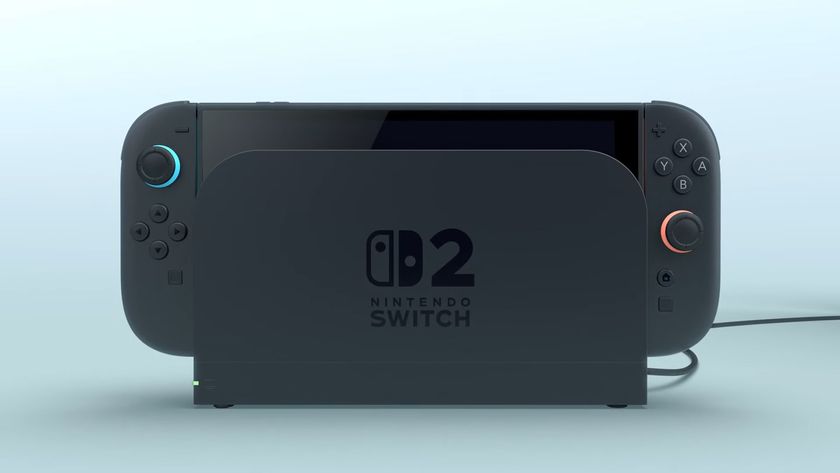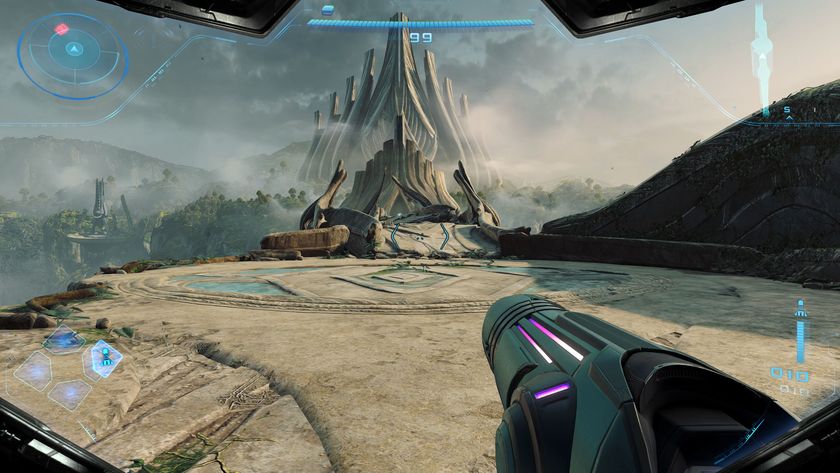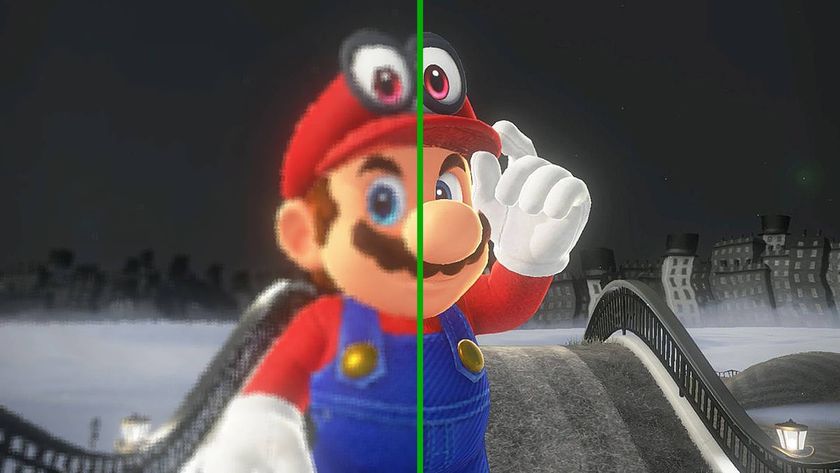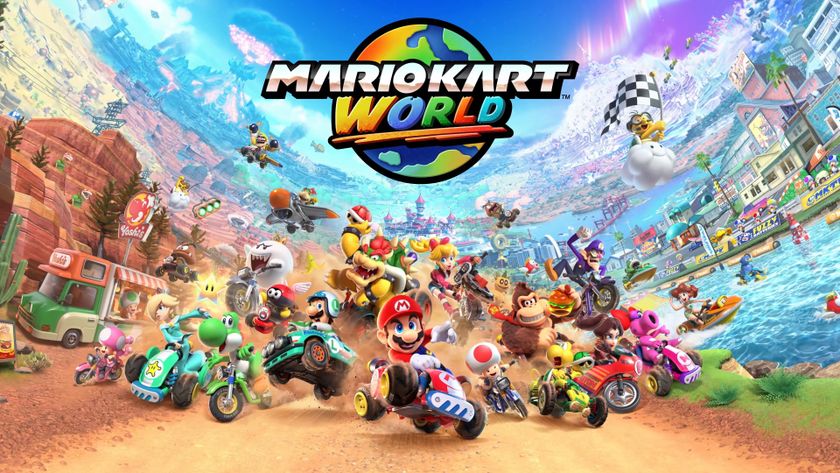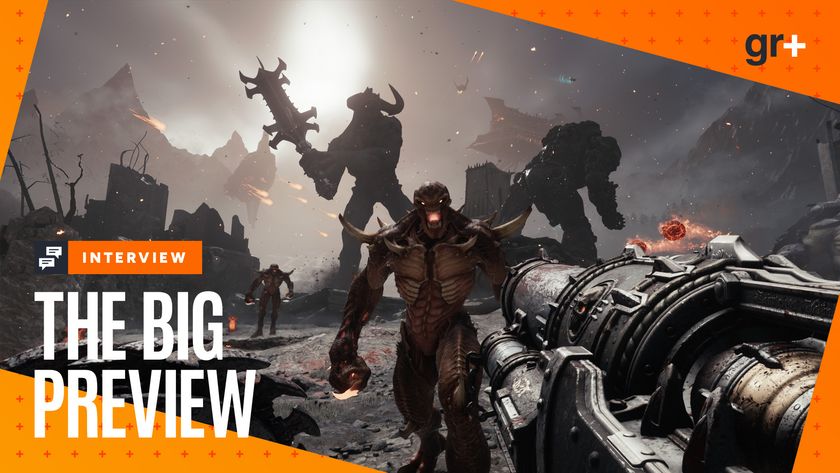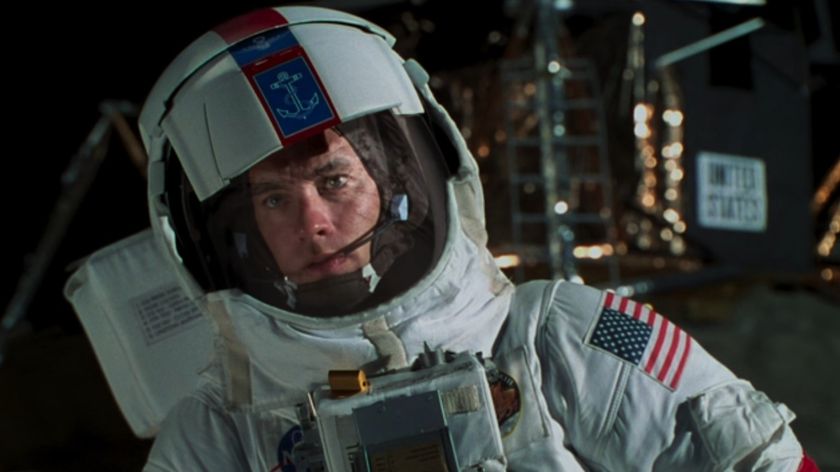Django Unchained: 50 Best Moments
Warning: HUGE spoilers follow...
"Snowy snow."
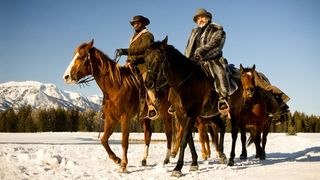
Again, another small moment, but when Schultz and Django arrive with their latest claims, and are both greeted by a friendly Marshall who invites them to come in out of the "Snowy snow," it's nice to see that not all white people treat our hero with violent distain.
This is exactly the sort of scene that could be cut for time - it doesn't drive the narrative forward in any way - but we're glad Tarantino left it in.
That our heroes exist in a universe where kind white people exist, somehow makes the villains even more evil.
"I like the way you die boy"
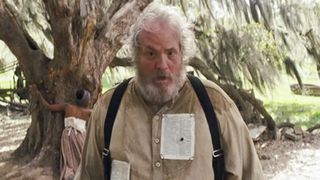
"They whipping little Jody? Point me in that direction."
Simple words on the page, but Foxx delivers them so resolutely, you know trouble is on its way.
And with that, Foxx storms towards the first two Brittle brothers - whilst Hitchcockian strings play on the soundtrack - taking his first steps toward revenge.
This scene was all over the trailers, but the "I like the way you die boy" callback is giving extra resonance by the context - we now see it as a reply to "I like the way you beg boy."
Sign up for the Total Film Newsletter
Bringing all the latest movie news, features, and reviews to your inbox
There are so many little details that make this scene special. From Django's reflection in a distant mirror when he first faces his foes, to the fact that - somehow - Foxx manages to make the blue boy suit as intimidating and awesome as armour.
Schultzs arrival
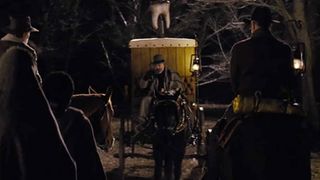
Story-telling and fairy-tales are a big part of Django ’s narrative, so it seems fitting that the most loquacious character in the film is introduced in a manner that seems ripped straight from the pages of Grimm.
Appearing suddenly from the depths of a fairy-tale forest, Dr Schultz finds himself confronted with the exactly the man he’s looking for.
Schultz is either the greatest tracker in the South, some sort of wizard (he does have the beard), or best friends with fate. It’s too cool to feel like a coincidence.
Big Daddy's introduction
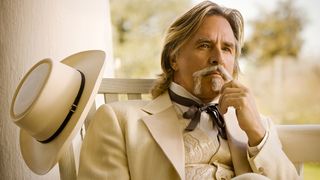
Don Johnson, dressed like the KFC colonel, addresses Django and Schultz from his balcony, berating them for the audacity of arriving on his property.
But then Schultz strokes his moustache, offers a large sum of money, and all of a sudden Big Daddy turns on his southern charm, inviting them inside for "something cool to drink."
But all the while, grotesque racism simmers under the surface.
It's a slippery, slimy performance. Not as showy as DiCaprio's, perhaps, but just as vile.
Schultz foreshadowing his own death
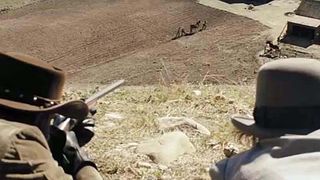
This one’s so subtle we’re not sure if we’ve imagined it.
When Django is facing his first kill as a bounty hunter, he has his doubts. He’s not to keen to murder a man in front of his own son.
Schultz reasons that it’s a positive that the bandit’s son will be present. Django’s target will die with someone he loves, and he may even get to say goodbye. King believes that’s the best possible death.
"Well good," he says. "He'll have a loved one with him, maybe even get a last word - it's better than most of us get."
Later, when Schultz meets his maker, he’s in the presence of Django, who is arguably his surrogate son.
He even gets the chance for some last words. “I’m sorry, I couldn’t resist.”
Django drinks his first beer
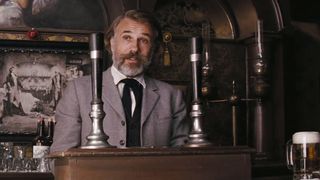
Another small moment, but enjoyable all the same.
Tarantino focuses on Dr Schultz pouring beer, in loving close up - making it look like the most delicious thing in the world.
King hands the pint to Django, insists on clinking glasses, then our hero holds his drink in both hands, takes a sip, and looks at it in wonder, before wiping the foam from his face.
As first tastes of freedom go, this one doesn't seem to be too bad.
Tarantino explodes
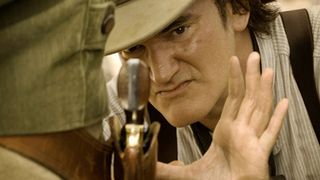
Quentin Tarantino has always wanted to be an actor. It’s why he got into the movie business.
Despite the fact, as an auteur, he can cast himself as the lead whenever he wants, he usually understands the limits of his talent, and restricts himself to cameo roles.
In Django Unchained , he seems to be trying to stretch those limits, attempting a fairly foolhardy accent (is it South African? Australian? Scottish?)
Still, we don’t have to suffer it for long. He appears briefly, says a few lines, then explodes fairly spectacularly. Sadly, because of that accent, it’s one of the most satisfying deaths in the movie.
But we won’t begrudge Quentin for it. The man got into the business to be an actor. As long as he keeps making movies like Django , we’ll happily entertain his dream.
I dont go in for sweets, thank you.
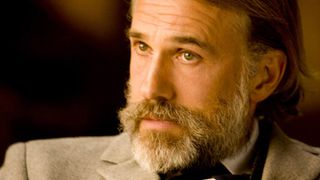
Ideologically, Dr King Schultz and Calvin Candie couldn’t be more diametrically opposed.
And it appears this dynamic even applies to their eating habits. Candie spends most of the film shoving sweets into his gob, like the spoilt child he is.
When Schultz, a dentist, refuses Candie’s offer of white cake with a curt: “I don’t go in for sweets, thank you.” it is a further rejection of Candie’s way of life.
A sweet tooth is hardly Candie’s worst crime, but the disgust in Schultz’s voice suggests the good doctor still has dentistry running through his veins.
Thankfully, shortly after this exchange, Schultz is able to remove the rotten tooth from existence.
Blue boy
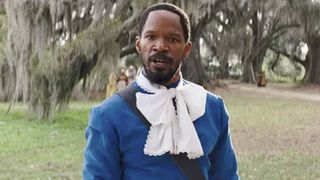
King has just explained to Django that he will be essentially playing a character - his valet.
He tells him to pick out a costume for his character.
"Youse gonna let me pick out my own clothes?"
Cut to Django on horseback, dressed in a suit very similar to the one found in Thomas Gainsborough's painting The Blue Boy.
Director F.W Marneu once directed a film inspired by The Blue Boy.
He was probably best known for directing Nosferatu , but in film circles he's known for pioneering an influential shooting style.
It's name? Unchained Camera Technique.
You might laugh at the ostentatiousness of the suit when Tarantino smashcuts to it, but he's laughing extra hard - for coming up with the most obscure in-joke in cinema history.
The credit sequence
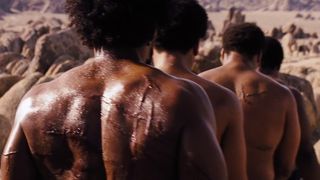
Quentin sure as hell knows how to put together a credit sequence, and Django Unchained may well be his best, despite stuff competition from Pulp Fiction and Jackie Brown .
It seems to combine everything that’s great about Tarantino movies.
The bleak drama of slaves being forced to shuffle in chains by their masters, the stark nature of their surroundings, the attention to detail in the title design, the unexpected humour of the ‘with the friendly participation of Franco Nero’ credit, and, of course, the effortless cool of the theme song.
We won’t go too much into detail on that song (that deserves an entry on its own, and it's coming up next) other than to point out the moment when credit sequence and theme song seem to combine, when Jamie Foxx’s Django appears to move to the beat of the music, almost as though the lyrics are running through his head.
From the very first moments of Django Unchained , you know you’re in very safe hands.
Sam Ashurst is a London-based film maker, journalist, and podcast host. He's the director of Frankenstein's Creature, A Little More Flesh + A Little More Flesh 2, and co-hosts the Arrow Podcast. His words have appeared on HuffPost, MSN, The Independent, Yahoo, Cosmopolitan, and many more, as well as of course for us here at 12DOVE.
